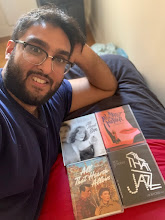In alphabetical order:












Woody Allen
After two slightly mediocre pictures, the master of neuroses bounced back with his loving ode to France's capital, Midnight in Paris. Not only was Paris Allen's biggest box office hit ever but it could possibly be his first Best Screenplay nominee since 2005's Match Point. Paris was definitely indicative that Allen's still got it.

Pedro Almodovar
Almodovar was another director who bounced back with another film The Skin I Live In. In 2009, he released Broken Embraces, a noirish melodrama that I loved but wasn't the critical darling Skin is. The film is a rape-revenge horror film that is as twisted as it is tragically romantic. Hopefully next month Almodovar find his film a Best Foreign Language Film nominee.

Jessica Chastain
Starring in diverse films like The Help, The Debt and The Tree of Life, Chastain randomly came into the spotlight as an acting force to be reckoned with. I have no idea where she came from but she has received some recognition for her work. She is even in the running for an Oscar nomination for her work in The Help (very much deservedly, in my opinion).

Dan, Emma & Rupert
The Harry Potter film series came to a close with the release of Harry Potter and the Deathly Hallows Part 2. While I personally found the film to be too rushed, fault cannot be found with the main trio. They really brought their A game and their onscreen chemistry reinforced why the series is so popular. They're normal and realistic, despite their extraordinary circumstances.

Viola Davis
This two time Tony winner and Oscar nominee is back in the Oscar spotlight for her fearless and empathetic performance as Aibileen in The Help. I'm hoping this major attention will bring more roles to Davis, who unfortunately gets sidelined into supporting roles (her Oscar nomination was for a single but still effective scene in Doubt). It doesn't hurt that The Help was a strong movie and a financial success.

Zooey Deschanel
When Zooey D was confimed for the sitcom New Girl, well, people were a little skeptical. Deschanel, who is famous for her adorably nerdy screen persona, isn't exactly an actress who one would think could sustain her own TV show. But Zooey D proved them all wrong as New Girl was a critical and popular victory. And who couldn't love that silky voice?

Michael Fassbender
Many actors probably dream about the year that Mike Fassbender had in 2011 but few actors actually have it with success. Fassbender won over hard-to-please Bronte fans in Jane Eyre, excited superhero geeks in X-Men First Class, bared himself physically and emotionally in Shame, and navigated the mazes of the mind as Carl Jung in A Dangerous Method. And yet he left us wanting more.

Ryan Gosling
With Drive, The Ides of March and Crazy Stupid Love, Gosling released three films that are diverse and interesting. The pick of the lot is Drive, the melodrama that occasionally exploded in graphic violence. I think Crazy Stupid Love is an intelligent romantic-comedy that showcases Gosling's lighter side. In 2011, Gosling has proved himself to be a versatile and interesting actor with a bright future.

Martin Scorsese
When every other movie is released in poorly converted, overpriced 3D, it took a real auteur with a gift for visual storytelling to be the first one to utilize correctly the technology since 2009's Avatar. Hugo was Scorsese's love letter to the origins of cinema and a child's exploration of his own past. The film was a visual delight, a treat for those who love movies like Scorsese does.

Emma Stone
In an era when young actresses rarely get any meaty roles. Emma Stone has provided some intelligent, three-dimensional characters for the audience to love. Stone has starred in two remarkable movies and had a memorable cameo in another (Crazy Stupid Love, The Help and Friends with Benefits respectively). Emma Stone is one of those rare actors who, like Meryl Streep, Tina Fey and Steve Martin, are probably as cool as they seem on the screen.

Kristen Wiig, Melissa McCarthy & the Bridesmaids team
This summer saw a full on runaway hit with Bridesmaids, a hilarious and insightful look at the ups and downs in female friendship. Star and co-writer Kristen Wiig delivered a lead performance that was both incredibly funny and refreshingly honest. McCarthy became the year's breakout star, giving her character Megan the right balance between outrageous humor and emotuonal depth. Bridesmaids was definitely the comedy of the year.











































